Avinor’s high-level strategy for future baggage handling infrastructure focused on robotics, autonomous vehicles, and smart systems using AI
The following article was published by Future Travel Experience
In this interview, Idar Sørgjerd, Department Manager, BHS, Tech & Op. Excellence, shares Avinor’s strategy for its baggage handling infrastructure, with robotics, autonomous vehicles, and AI at the forefront.
Avinor – a Partner of the FTE Baggage Innovation Working Group (BIWG) – has developed a high-level strategy for its baggage handling infrastructure in the coming years, with robotics, autonomous vehicles, and Artificial Intelligence (AI) at the forefront. In this interview, ahead of his participation at the FTE Aviation & Robotics Summit (Pittsburgh, 14-16 May 2024), Idar Sørgjerd, Department Manager, BHS, Tech & Op. Excellence, Avinor and a BIWG Captain, shares Oslo Airport’s role as a technology driver.
Register or express your interest in attending the FTE Aviation & Robotics Summit >>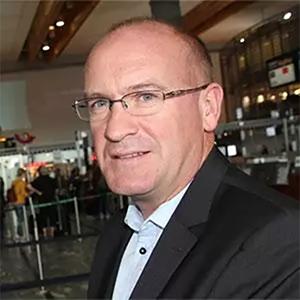
Sørgjerd is speaking at the FTE Aviation & Robotics Summit, taking place in Pittburgh – the ‘Robotics Capital of the World’. The Summit will bring together aviation and robotics industry professionals to solve aviation business and operational challenges with robotics and AI solutions. The truly unique event will feature inspirational keynotes, panels, robotics innovation tours, technology demos, collaborative workshops, and a plethora of networking activities. “From Avinor’s perspective, we have carved out a high-level strategy for our baggage handling infrastructure in the coming years,” Sørgjerd begins. “This includes the use of autonomous guided vehicles (AGVs), robotics and new software-based systems preferably with the utilisation of AI. Our capital airport, Oslo Airport, has historically been a technology driver, pushing and lifting our suppliers to new levels. Our aim is to continue this through development partnership models with airports and support from dedicated suppliers. The FTE Aviation & Robotics Summit is, for us, a communication channel for this message and we hope to attract suppliers and other industry players pursuing and supporting us in this development.”
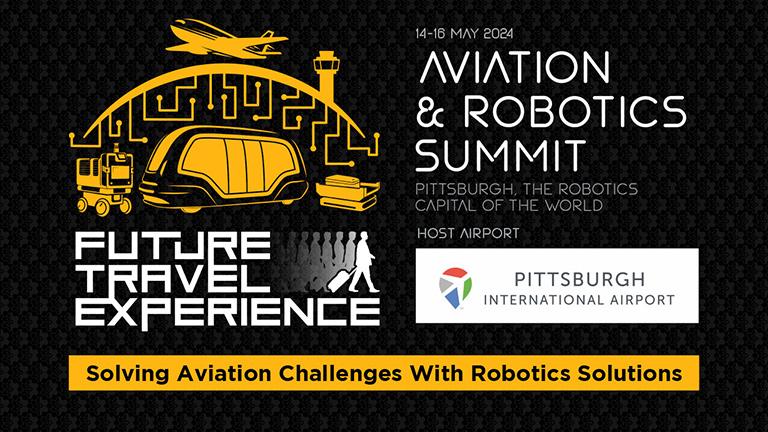
Avinor’s automated baggage handling concept to deliver tangible business impact at each step
Avinor’s automated baggage handling concept will be released through four main steps, with tangible business impact at each stage:
- Digital planning solution
- Batch release optimisation
- Autonomous guided vehicles (AGVs)
- AGV and robotics
It is now in the final phase of building and commissioning the first stage of the platform supporting this strategy. BEUMER Group (a Strategic Partner of the FTE BIWG) has installed a new baggage handling system at Oslo Airport with loadcells and batch build, enabling the first stage towards full automation. In addition, Avinor and Vanderlande (an Airport Lab Network Partner of the FTE BIWG) are together developing and building a Proof of Concept installation in the Concept Test Centre at Oslo Airport, as part of their innovation partnership to explore last-mile baggage automation. This includes a test set up with AGVs and robotic loading.
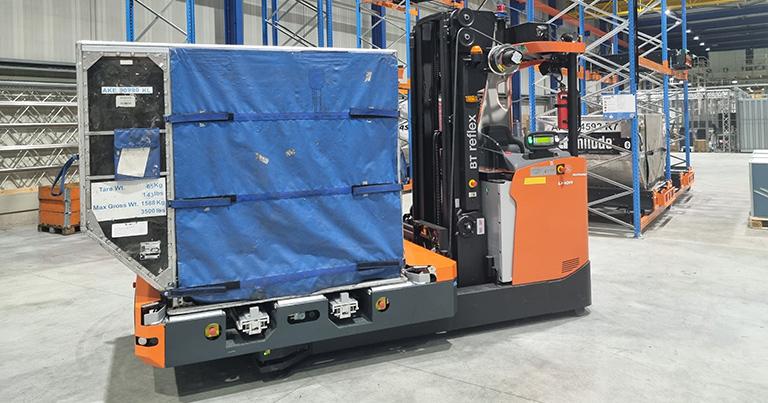
“Proving these modules will point us in a direction for the next phase of development,” Sørgjerd explains. “To support this, Avinor has developed an ecosystem and digital planning solution supporting the usage and optimisation of the fully automated baggage handling system through the different stages of development. It will be installed this summer. These projects will formulate the capable KPIs for the future systems.”
Robotics, automation and AI to improve reliability, efficiency and transparency
Avinor’s expectation is that robotics and automation will improve several areas and stages of the baggage handling process. “The turnaround process and reliability of the systems will be improved, manual processes will be decreased to a minimum, and efficiency and operational performance will be enhanced due to smarter systems using AI,” says Sørgjerd. “With this, passengers will experience higher reliability on the delivery of bags, shorter waiting times, and a more transparent transport process of their bags.”
Meanwhile, Avinor has several ongoing AI projects. It will start the development of using AI in the baggage handling process this summer. “This is, however, an area in this part of the industry, so far, with limited delivery capabilities,” Sørgjerd notes. “We do, however, hope to communicate the ‘push’ and interest in this area, and for the right industry players to respond on this. We are curious to see the response to this.”
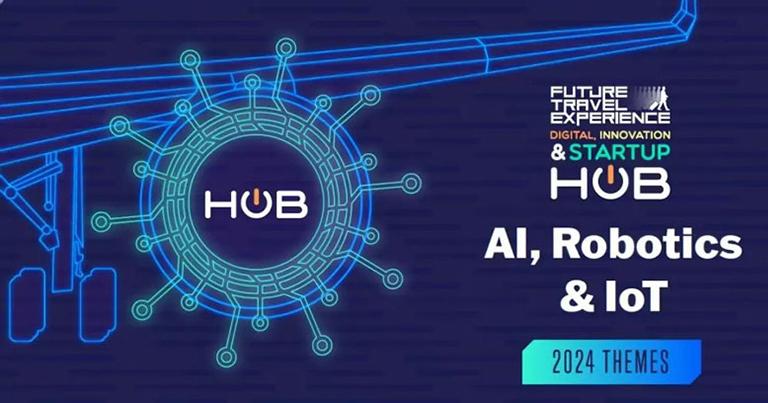
FTE Baggage Innovation Working Group: “A major player as a tech cluster for innovations within baggage handling globally”
The FTE BIWG brings together the most innovative and progressive baggage supply chain companies, airlines, and airports from across the industry, providing a unique platform for cooperation and industry advancement. It is the platform for developing new techniques, technologies, and business models to deliver tangible change in the baggage sector. Members regularly come together to learn from one another and collaborate on game-changing Proof of Concepts to reduce costs, improve passenger experience, and test innovations. It is a genuinely engaged community and the industry’s best learning and networking platform for those serious about baggage.
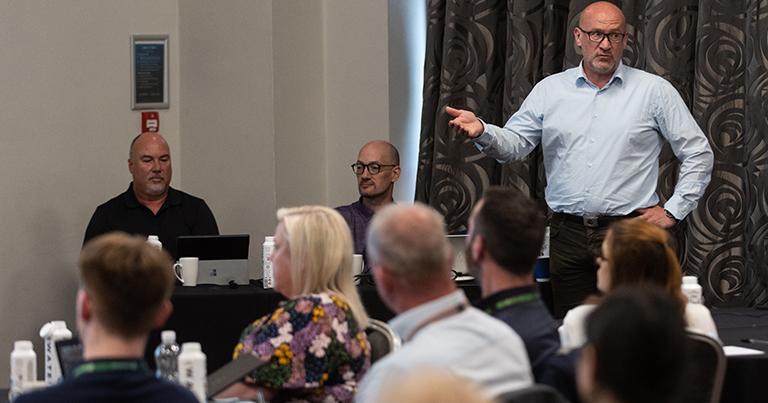
Avinor has been a Partner of the FTE BIWG since its launch in 2021. “The BIWG is today probably the best initiative and environment for the different industry players to meet, present and pitch technology and new ideas,” says Sørgjerd. “It is for us in Norway, and me, the best arena, with a richness and diversity of industry players, being established suppliers, innovators, buyers, new startups, etc. It is the only place where I meet with a common goal to pursue development within our industry without limitations coming from geography, culture, capital, politics, or barriers in any perspective. It is for me as a Captain a dream scenario for ‘hand-picking’ ideas for establishing collaborations and developments, as well as pursuing projects for Proof of Concepts and later procurement and installations. It has become a major player as a tech cluster for innovations within baggage handling globally.”
Looking ahead, Sørgjerd is eager to participate in the FTE Aviation & Robotics Summit in May. “Robotics, automation and AI are the headline technologies for future developments within our industry. I am very excited to hear and see what the players will demonstrate and communicate in Pittsburgh.”
Register or express your interest in attending the FTE Aviation & Robotics Summit >> View 10 reasons to attend the FTE Aviation & Robotics Summit >> Find out more about sponsorship opportunities >>Article originally published here:
Avinor’s high-level strategy for future baggage handling infrastructure focused on robotics, autonomous vehicles, and smart systems using AI
from Future Travel Experience https://ift.tt/4yBM8gb
Comments
Post a Comment